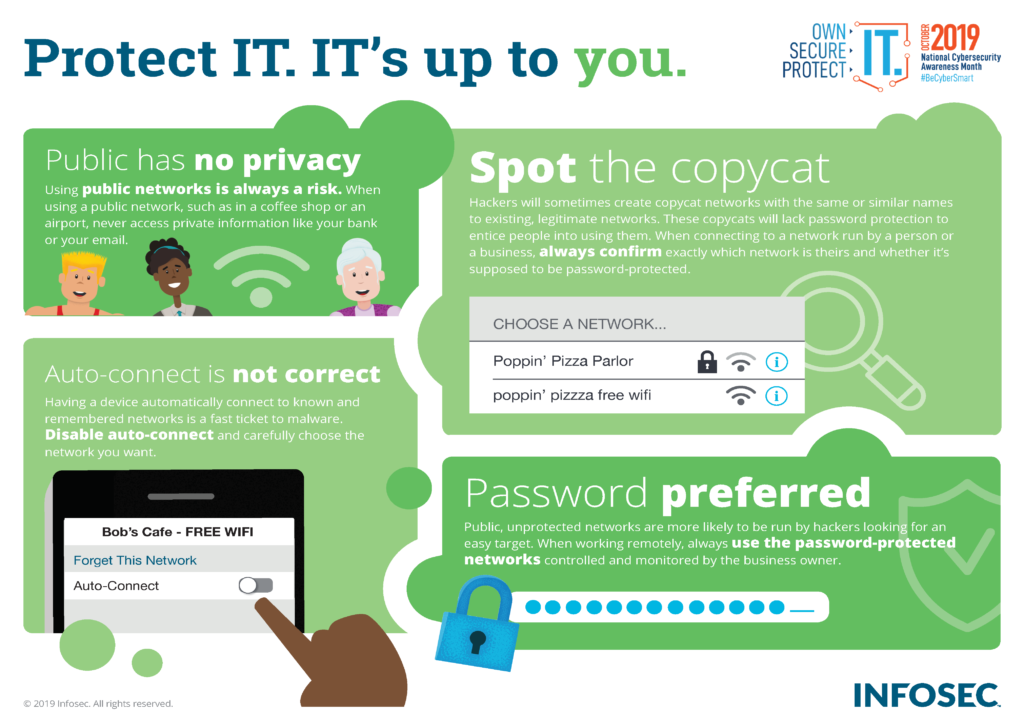Protect it: Free public wifi isn’t safe wifi
In the age of constant internet connectivity, access is always a hot commodity. Many businesses and localities now offer free public wifi for customers for convenience and to encourage visitation. But just because it’s free, doesn’t mean it’s safe.
Using unsecured public wifi networks can leave you and your device open to hackers seeing important emails, sensitive personal data and unsecured logins. In addition, your device could also be hacked. The use of Virtual Private Networks (VPN) can offer protection. VPNs allow you to connect securely to specific application, even though you may be using a public wifi connection. Learn more about VPN access offered at Elon.
For National Cybersecurity Awareness Month (NCSAM) and everyday online safety, increase your knowledge of free public wifi and associated risks, so that you can help protect yourself from the threat of scammers looking to obtain your personal identifiable information and other sensitive data. Here are some tips to help you stay safe online.

Protect IT – It’s Up to You!
Public Has No Privacy: Using public networks is always a risk. When using a public network, such as in a coffee shop or an airport, never access private information like your bank or your email.
Spot the Copycat: Hackers will sometimes create copycat networks with the same or similar names to existing, legitimate networks. These copycats will lack password protection to entice people into using them. When connecting to a network run by a person or a business, always confirm exactly which network is theirs and whether it’s supposed to be password-protected.
Auto-Connect is Not Correct: Having a device automatically connect to known and remembered networks is a fast ticket to malware. Disable auto-connect and carefully choose the network you want.
Password Preferred: Public, unprotected networks are more likely to be run by hackers looking for an easy target. When working remotely, always use the password-protected networks controlled and monitored by the business owner.
 Follow
Follow